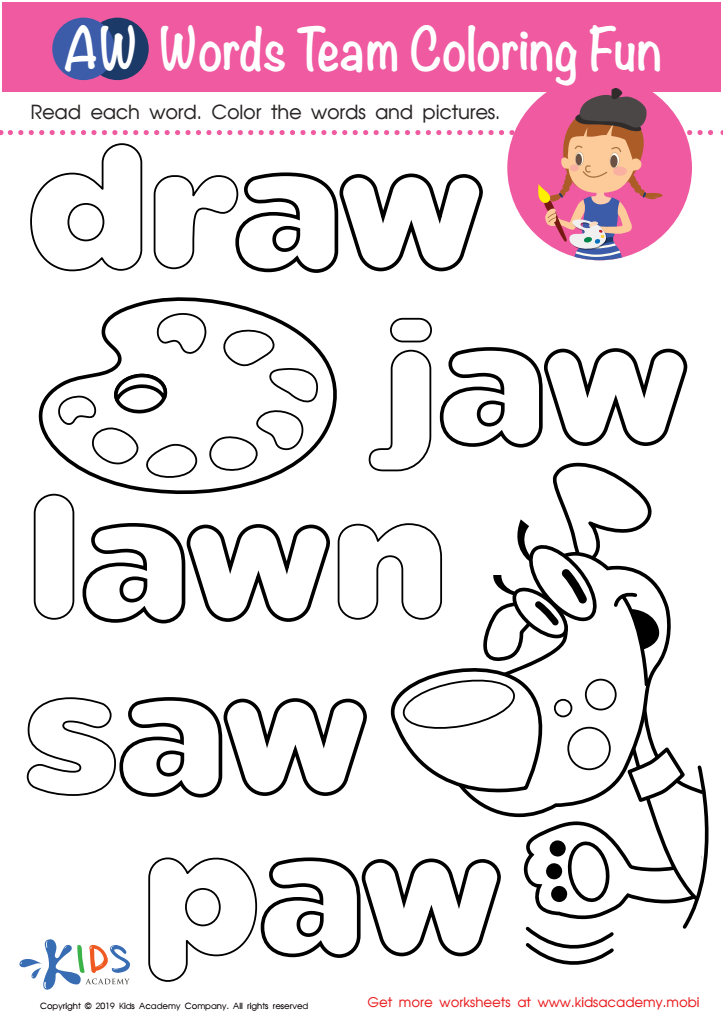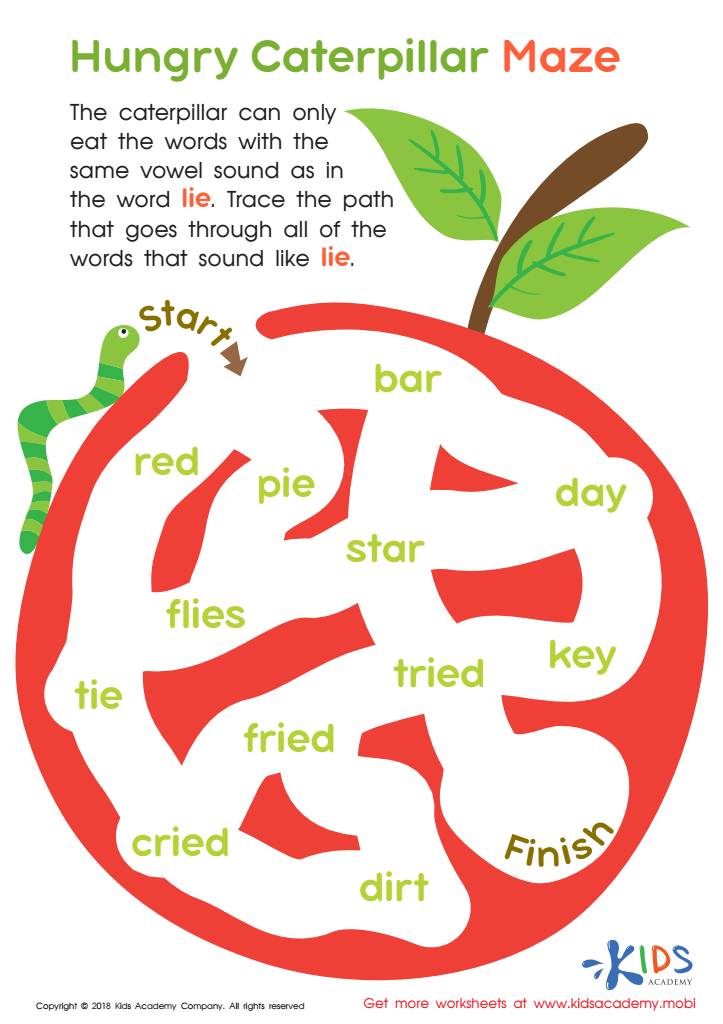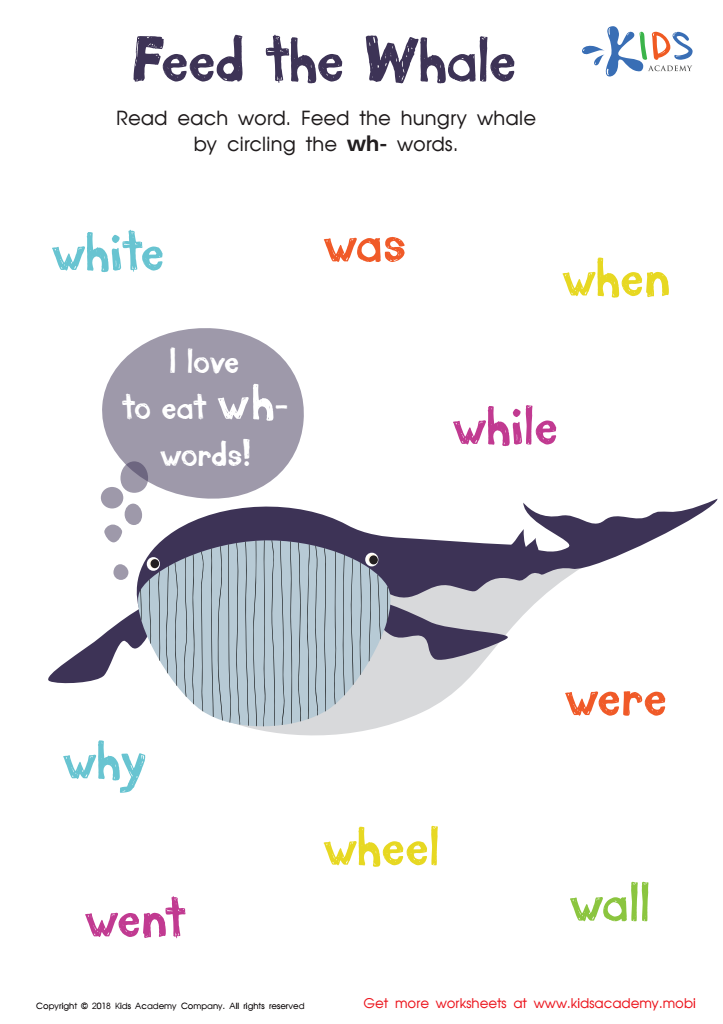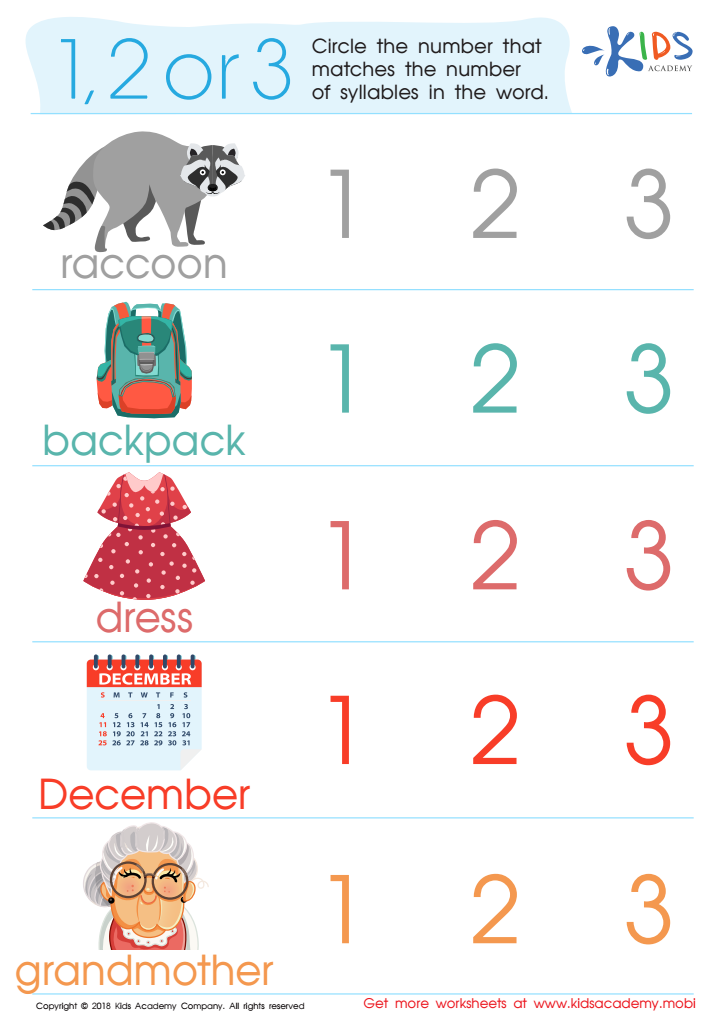Fine Motor Skills Normal Phonics Worksheets for Ages 3-6
5 filtered results
-
From - To
Enhance your child's early learning experience with our "Fine Motor Skills Normal Phonics Worksheets" designed for ages 3-6! Perfect for young learners, these engaging worksheets seamlessly blend phonics practice with essential fine motor skill development. Kids will enjoy activities like tracing letters, matching sounds, and coloring while honing their dexterity and hand-eye coordination. Our user-friendly design encourages independent learning, making it easy for parents and educators to support children's literacy foundation. Give your little ones the tools they need to succeed as they build confidence in their phonics skills—all while having fun! Discover a world of learning today!


AW Words Team Coloring Fun Worksheet


Long and Short U Worksheet


Hungry Caterpillar Maze Worksheet


Feed the Whale Worksheet


1, 2 or 3? Worksheet
Fine motor skills and phonics development are crucial for children aged 3-6, as they lay the foundation for later academic and personal success. Fine motor skills involve the coordination of small muscles in the hands and fingers, which are essential for tasks like writing, cutting, and using tools. Strengthening these skills enhances children's ability to participate actively in classroom activities, fostering confidence and independence.
Simultaneously, phonics—understanding the relationship between letters and sounds—is vital for early literacy. It enables children to decode words, develop reading fluency, and build a love for reading. Mastering phonics at an early age allows children to unlock their imagination and take on new concepts more effectively.
Parents and teachers should prioritize these developmental areas, as they are interrelated; strong fine motor skills facilitate writing, while phonics skills enhance reading and literacy activities. Engaging children in activities that promote both skills—such as coloring, cutting, and phonics games—can create a holistic learning experience. By supporting fine motor and phonics development, caregivers set children on a path of academic readiness and lifelong learning, ensuring a well-rounded educational foundation.
 Assign to My Students
Assign to My Students














